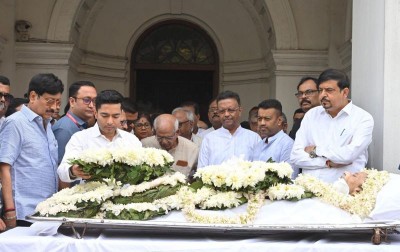
Union Cabinet approves 8th Pay Commission to revise salaries and pensions of Central govt employees and retirees
New Delhi: The Union Cabinet has given its approval for the 8th Pay Commission to revise the salaries and pensions of central government employees and retirees.
Announcing the decision on Thursday, 16 January, Union Minister Ashwini Vaishnaw confirmed the approval but did not specify when the commission would be constituted.
This decision, coming just ahead of the Union Budget 2025, is expected to lead to a salary hike for government employees and pensioners.
The 8th Pay Commission is anticipated to build upon the reforms of the 7th Pay Commission, which came into effect in January 2016.
The new commission is expected to finalise its recommendations by the end of 2025, and a committee has been formed by the Central government to monitor its implementation.
According to reports, a significant change being considered is an increase in the fitment factor from 2.57 to 2.86.
This key parameter, which determines the multiplication factor for calculating revised salaries and pensions, could result in higher basic salaries for employees if implemented.
The salary structure for government employees has undergone notable transformations under previous pay commissions.
The 7th Pay Commission replaced the older pay bands and grade pay system with a simplified pay matrix in 2016.
It set the minimum monthly salary at Rs 18,000 and the maximum at Rs 2.5 lakh for Cabinet Secretaries, applying a fitment factor of 2.57 times the basic pay.
Additionally, the gratuity ceiling was increased to Rs 20 lakh, and various allowances, including House Rent Allowance (HRA), were rationalised.
The 6th Pay Commission, implemented in 2006, had earlier introduced the pay band and grade pay system.
It set a minimum monthly pay of Rs 7,000 and a maximum of Rs 80,000 for secretary-level officers, with a fitment factor of 1.86 times the basic pay.
The gratuity ceiling was raised to Rs 10 lakh, and allowances were streamlined to improve benefits such as HRA.
These adjustments laid the foundation for subsequent reforms, including those expected from the 8th Pay Commission.
The Cabinet’s approval is likely to positively affect millions of government employees and pensioners, potentially increasing their disposable incomes.
This anticipated salary hike could stimulate consumer spending, adding momentum to the economy as the Union Budget 2025 approaches.
Support Our Journalism
We cannot do without you.. your contribution supports unbiased journalism
IBNS is not driven by any ism- not wokeism, not racism, not skewed secularism, not hyper right-wing or left liberal ideals, nor by any hardline religious beliefs or hyper nationalism. We want to serve you good old objective news, as they are. We do not judge or preach. We let people decide for themselves. We only try to present factual and well-sourced news.







